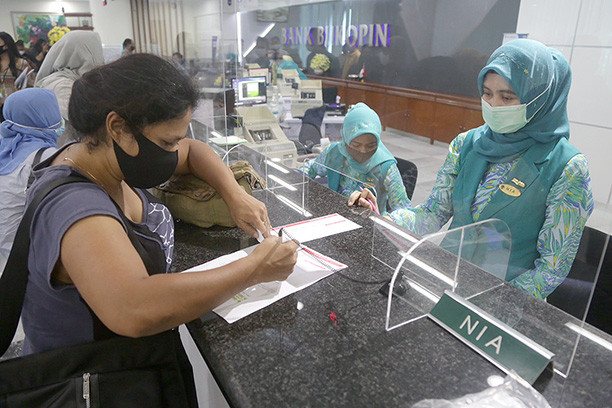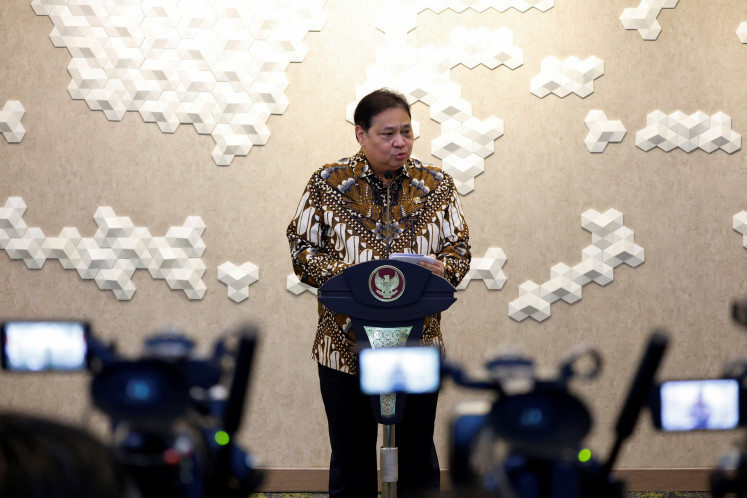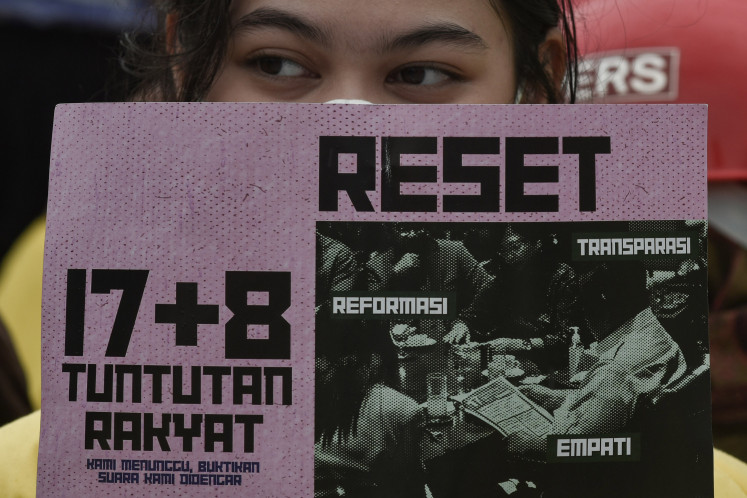Popular Reads
Top Results
Can't find what you're looking for?
View all search resultsPopular Reads
Top Results
Can't find what you're looking for?
View all search resultsWhen KB Kookmin Bank controls Bukopin
The Supreme Audit Agency had warned that OJK supervision of Bukopin’s performance for 2019 was quite inadequate, resulting in misleading reports to the public.
Change text size
Gift Premium Articles
to Anyone
T
he Financial Services Authority (OJK) has been trying to accelerate the consolidation of the banking industry, which has long been overcrowded by weak small and mid-size banks, especially now under the pandemic-induced economic crisis.
And as the country is struggling with public health and economic crises caused by the COVID-19 pandemic, many of the banks have been facing liquidity pressures because many businesses made big losses and failed to service their loans.
Hence, the great enthusiasm of South Korean KB Kookmin Bank to take control of Indonesian mid-size Bank Bukopin should soothe the OJK’s worry, especially because Bukopin has been suffering severe liquidity pressures and even a bout of small runs by depositors over the past few weeks.
In fact, the Supreme Audit Agency had warned that OJK supervision of Bukopin’s performance for 2019 was quite inadequate, resulting in misleading reports to the public. As a mid-size bank, most of Bukopin’s customers have been micro, small and medium-scale businesses, which have been hardest hit by the pandemic.
The latest reports showed that Bukopin’s loans had grown 7.06 percent to Rp 66 trillion (US$4.5 billion) as of March 2020, with third party funds totaling Rp 72.63 trillion and a loan-to-deposit ratio of 90.92 percent, slightly over the 78.92 percent threshold. Bukopin’s net interest margin was 2.44 percent, far below the industry average of 4.31 percent, and its capital adequacy ratio was 12.59 percent, lower than the industry average of 21.67 percent. But its non-performing loans increased to 5.33 percent, slightly higher than the 5 percent ceiling.
Kookmin’s acquisition of Bukopin would also be rather easy and welcomed because Bukopin is a publicly listed bank, with 40.43 percent owned by the public, 23.39 percent by PT Bosowa Corp., 5.25 percent by Kopelindo, 8.91 by the Indonesian government and 21.99 percent by Kookmin itself.
Moreover, Law No. 2/2020, which governs the government’s response to the pandemic and its devastating impacts, gives a much stronger mandate to the OJK to consolidate the banking industry through mergers and acquisitions in a bid to reduce the number of commercial banks, which still total more than 100, in addition to the thousands of secondary rural banks
Kookmin’s great interest in taking over controlling ownership of Bukopin in the middle of the economic crisis shows the Korean bank’s high optimism in the consistently bright outlook of the banking industry.
Take for example the following facts: the average net interest margin of the industry is still 4.57 percent, the highest in ASEAN; Indonesia is also still largely unbanked; and the country’s economic growth has been among the highest in Asia over the past decade.
Kookmin itself would be well positioned to improve Bukopin’s performance. They would have a strong synergy. As the fourth largest bank in South Korea and the 30th largest in Asia, Kookmin would be able to broaden and expand its operations across the world’s largest archipelago through Bukopin’s networks and customer base.
Bukopin’s acquisition of Kookmin will also enhance competition between foreign banks from Asia (Japan’s Bank Sumitomo Mitsui Indonesia merged with BTPN), South Korea (Industrial Bank of Korea through Bank Agris, which merged with Mitraniaga Bank) and Thailand (Bangkok Bank acquired Bank Permata) is increasingly fierce in the Indonesian banking industry.
***
The writer is bank analyst and former senior executive of Bank BNI.










